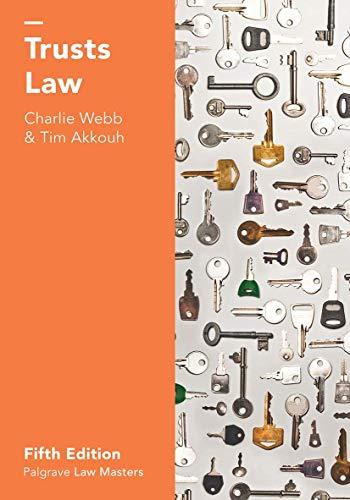Question
I need help 1B. Indicate whether the following statements, relating to information sharing under Chapter 16A of the Children and Young Persons (Care and Protection)
I need help
1B. Indicate whether the following statements, relating to information sharing under Chapter 16A of the Children and Young Persons (Care and Protection) Act 1998 are True or False.
| Statement | True | False |
| 1. Sharing information under Chapter 16A must be about the safety, welfare and wellbeing of children or young persons. | ||
| 2. This chapter allows you to share information about the child, siblings, parents/carers and significant others | ||
| 3. Under Chapter 16A you may share information with Commonwealth and Federal Government agencies | ||
| 4. Sharing information under Chapter 16A relates to NSW only | ||
| 5. You do not need consent from the family to share information under Chapter 16A | ||
| 6. Sharing information may only occur between prescribed bodies as defined by the Children and Young Persons Care and Protection Act. | ||
| 7. You may share information with other family members and friends | ||
| 8. Police, Non-Government agencies and schools are examples of prescribed bodies. | ||
| 9. Sharing information under Chapter 16A of the Children and Young Persons Care and Protection Act 1988 assist in collaborative practices | ||
| 10. Once you have reported to the Child Protection Helpline you should not further engage with your client or family. You should also refrain from working with other services that are involved with the family. |
2A. Provide at least two (2) indicators for each of the following types of that might suggest a child is at risk of significant harm.
Access the MRG for detailhttps://reporter.childstory.nsw.gov.au/s/
Physical Abuse (example: bruising to ear)
1.
2.
Neglect
1.
2.
Sexual Abuse
1.
2.
Psychological Harm
1.
2.
A. When parents relinquish care of a child or young person they
- A. are no longer willing or able to provide food,
- B. are no longer providing shelter and supervision as per immediate
- C. have an AVO against the child that is preventing the child or young person from living in the home
- D. All of the above
B. Lack of supervision is a form of neglect
- True
- False
C. We have 'carer concerns' when (tick all that apply)
- A. The parents are misusing substances
- B. The parents have untreated mental health concerns
- C. They are single parents
- D. The parents are in domestic violence relationship.
3A. What is cumulative harm?
3B. What is the purpose of sharing information with other agencies about the safety, welfare and well-being of children and young people? List at least two (2) reasons.
4A. Explain the term 'Mandatory Reporting' Access the link below to assist with answering this question.
http://www.community.nsw.gov.au/preventing-child-abuse-and-neglect/resources-for-mandatory-reporters
4B. Provide at least two (2) examples of mandatory reporters and explain why these people are mandatory reporters. (Section 27(1) of the Children and Young Persons (Care and Protection) Act 1998).
1.
2.
These people are mandatory reporters because:
5A. What is the purpose of the Child Wellbeing Unit (CWU)?
5B. List three Government departments that have a CWU.
1.
2.
3.
6A. What is the purpose of Family Connect and Support
https://www.facs.nsw.gov.au/families/support-programs/all-families/family-connect-and-support
6B. List at least three other local support services that you may refer families and children to for assistance.
1.
2.
3.
7A. Access your workplace child protection policy, or utilise the child protection policy provided by your facilitator. Please record which workplace child protection policy you are referring to (name of the organisation) and attach a copy of this to the assessment.
7B. Refer to your policy and outline the procedures (steps) you must follow when you suspect a child is at risk of harm.
8. During your work at a youth centre you see your colleague, Angela, shouting at a child and pulling him roughly into the bathroom to wash his hands.
8A. What immediate action do you take and to whom you have an ethical responsibility and duty of care?
8B. Explain how you would engage with this child in a child-focused manner.
8C. In your workplace, who needs to be made aware of this incident?
9. Locate the UN Convention on the Rights of the Child and list two (2) articles that are relevant to the scenario in Question 8. Record the article number and a summary of the article.
https://www.humanrights.gov.au/convention-rights-child)
1.
2.
Step by Step Solution
There are 3 Steps involved in it
Step: 1

Get Instant Access to Expert-Tailored Solutions
See step-by-step solutions with expert insights and AI powered tools for academic success
Step: 2

Step: 3

Ace Your Homework with AI
Get the answers you need in no time with our AI-driven, step-by-step assistance
Get Started


